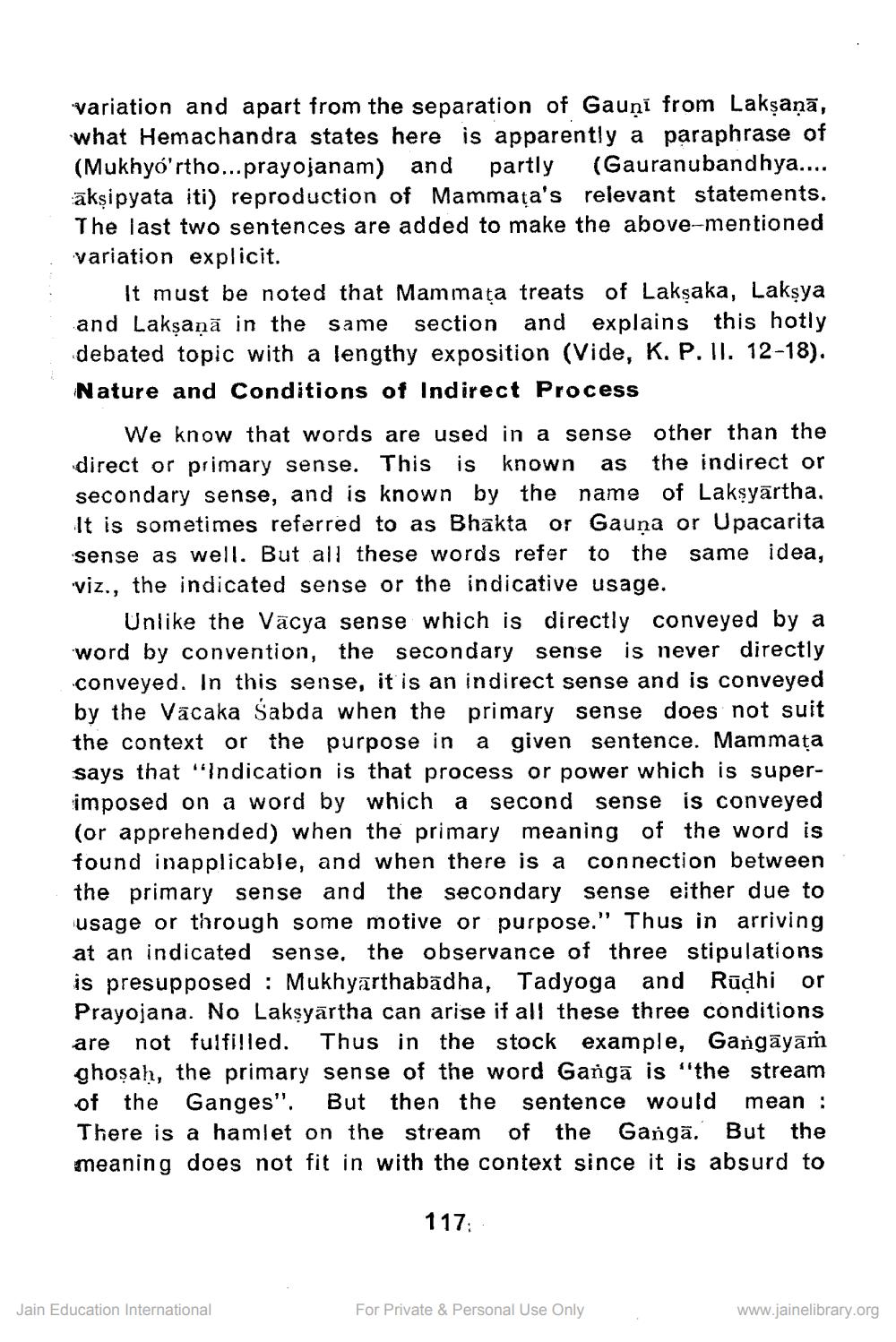________________
variation and apart from the separation of Gauni from Lakṣaṇā, what Hemachandra states here is apparently a paraphrase of (Mukhyo'rtho...prayojanam) and partly (Gauranubandhya.... ākṣipyata iti) reproduction of Mammata's relevant statements. The last two sentences are added to make the above-mentioned variation explicit.
It must be noted that Mammata treats of Lakṣaka, Lakṣya and Lakṣaṇā in the same section and explains this hotly debated topic with a lengthy exposition (Vide, K. P. II. 12-18). Nature and Conditions of Indirect Process
other than the the indirect or of Lakṣyartha.
We know that words are used in a sense direct or primary sense. This is known as secondary sense, and is known by the name It is sometimes referred to as Bhakta or Gauna or Upacarita sense as well. But all these words refer to the same idea, viz., the indicated sense or the indicative usage.
Unlike the Vacya sense which is directly conveyed by a word by convention, the secondary sense is never directly conveyed. In this sense, it is an indirect sense and is conveyed by the Vacaka Sabda when the primary sense does not suit the context or the purpose in a given sentence. Mammaṭa says that "Indication is that process or power which is superimposed on a word by which a second sense is conveyed (or apprehended) when the primary meaning of the word is found inapplicable, and when there is a connection between the primary sense and the secondary sense either due to usage or through some motive or purpose." Thus in arriving at an indicated sense, the observance of three stipulations is presupposed: Mukhyarthabadha, Tadyoga and Rūḍhi or Prayojana. No Lakṣyartha can arise if all these three conditions are not fulfilled. Thus in the stock example, Gangāyāṁ ghoṣaḥ, the primary sense of the word Ganga is "the stream of the Ganges". But then the sentence would mean: There is a hamlet on the stream of the Ganga. But the meaning does not fit in with the context since it is absurd to
Jain Education International
117:
For Private & Personal Use Only
www.jainelibrary.org




